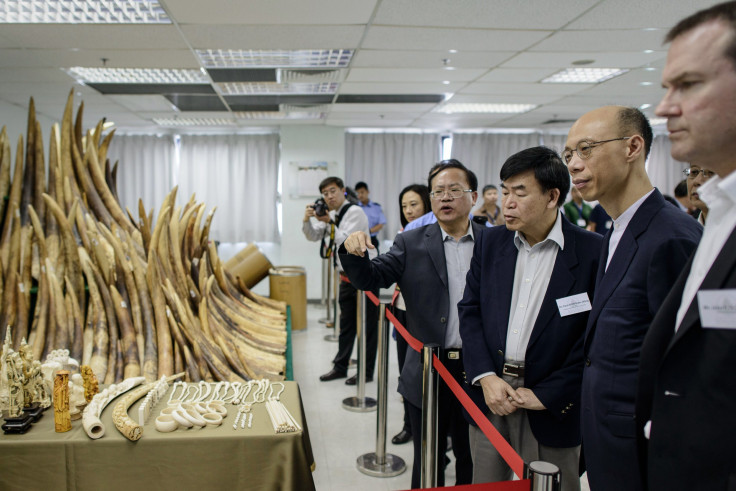China Imposes Year-Long Ban On Ivory Imports To Reduce Demand In The Country

China imposed a yearlong ban on importing ivory on Thursday, amid criticism over the country’s growing demand, which has contributed to increase in poaching of African elephants. The ban would be applicable on carved ivory items acquired after July 1, 1975, China Daily, the country's official news agency reported.
The State Administration of Forestry, China’s wildlife watchdog, reportedly said that it will not handle any more import requests. An official from the agency said that ban is expected to reduce the demand for African tusks in a country that is the world’s largest ivory importer.
“This action shows China's commitment to curbing the illegal ivory trade and to protecting African elephants," Meng Xianlin, executive director-general of the Endangered Species Import and Export Management Office of China, said, according to China Daily, adding: "The one-year term will also provide time for us to observe and evaluate the actual effect of this act on the elephants."
Between 2010 and 2013, about 100,000 African elephants were killed by poachers worldwide, China Daily reported, citing a study published in Proceedings of the National Academy of Sciences. However, in recent months, the market for ivory in the country has witnessed a reduction. Compared to 2013, the number of reported wildlife smuggling cases also dropped 70 percent in 2014.
"We need support from source, transit and destination countries," John E. Scanlon, secretary-general of the Convention on International Trade in Endangered Species, said, according to China Daily, adding: "China has been dealing with it responsibly as a destination country, showing great leadership through customs and other enforcement departments. Source and transit countries should do the same, taking their responsibility seriously and doing what they can. We are in this together."
However, London-based Environmental Investigation Agency (EIA), suggested that the ban was "window dressing" by Chinese officials, who the agency accused of being involved in illegal procurement of ivory. In November, EIA accused high-level Chinese officials purchasing large amounts of ivory during a state visit to Tanzania and smuggling most of it back to China in diplomatic bags.
"It is unfortunate that (Chinese authorities have) not announced a much-needed policy change by banning all domestic trade in ivory -- this is the policy change that could actually make a difference for elephants in Africa," Shruti Suresh, wildlife campaigner for EIA, said, according to AP.
© Copyright IBTimes 2025. All rights reserved.






















